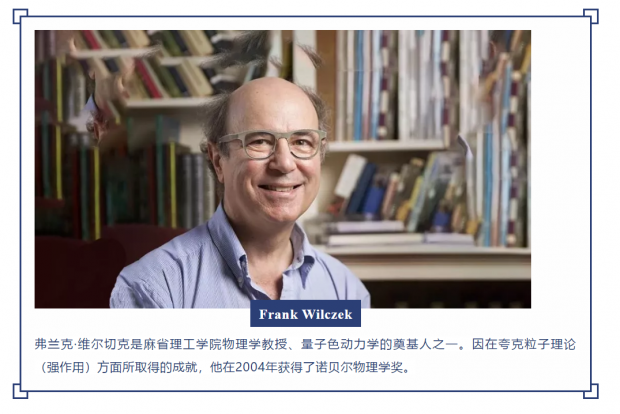阅读:0
听报道

撰文 | Frank Wilczek (麻省理工学院教授、2004年诺贝尔奖得主)
翻译 | 胡风、梁丁当
责编 | 隋幸迅
我们生活在虚拟世界中吗?
Are We Living in a Simulated World?
多半不是。但这个想法足够疯狂,以至于有必要认真讨论一下。
Probably not, but the idea is just crazy enough to be worth taking seriously.
《黑客帝国》这部电影为我们开了一个巨大的脑洞:我们生活的现实世界只不过是由一台超强计算机所创造出来的虚拟世界。这个想法足够疯狂,以至于我们有必要认真讨论一下。但在此之前,我们需要区别两个不同的问题。

第一个是:有没有可能存在这样一个包罗万象的精神世界,它是由抽象的数据形成的,而不是像表面上看上去那样建立在物质的基础上?
第二个问题则是:我们真实经历的这个世界——由物理学定律和宇宙学事实所描述的世界——是不是这样的一个虚拟世界?
The idea that the world we experience is an illusion being fed to us by powerful computers, popularized by the “Matrix” movies, is just crazy enough to be worth taking seriously. But if we’re going to be serious, it is important to distinguish between two very different questions. First: Could there be a richly experienced mental world that is not made of matter, as it appears to be, but of abstract data? And second: Is the world we actually experience—the universe as described by the laws of physics and the facts of cosmology—such a world?
对于前者,答案无疑是肯定的。事实上人在处于异相睡眠时会做梦。我们每天大约有一两个小时的时间,完全沉浸在大脑产生的虚幻感知中。在梦里,我们所看到的物体其实是大脑中不同形式的电信号。虚拟现实与此类似。虚拟现实技术通过各种数据流创造出我们所感知到的一切。可是梦会醒,而目前的虚拟现实技术还不能够提供包罗万象的体验。在大部分的时间里,我们仍然生活在一个共同的现实世界,在饮食人生中渐渐老去。但是很多专家认为,总有一天我们能够实现基于电子线路的人工心灵——它可以模拟人的思考过程,包括人的自我意识。这种存活在程序里的人工心灵,虽然嵌在物理真实里,却又能够超脱其外。
The answer to the first question is pretty surely yes. In fact, humans occupy self-generated mind worlds for an hour or two each day, when we dream during REM sleep. The objects we see in dreams are just patterns of electrical excitation in our brains. Analogously, virtual reality tunes us into data streams that we perceive as objects.
Dreams are transient, and at present virtual reality is not an all-encompassing experience. We humans still live the bulk of our lives in a shared reality, where we do things like eat, drink and get older. But many experts think that one day it will be possible to build artificial minds, wholly based on electronic circuitry, that will simulate human thought processes, including self awareness. Such artificial minds, inhabiting programmed worlds, could well be oblivious to physical reality, despite being embedded within it.
对于第二个问题——即我们所感知到的世界是不是由这些抽象的数据创造出来的,最佳的答案是:不是的。首先,如果我们所经历的物理世界真是由计算机模拟出来的,它就会带来一个更根本的问题,即这台计算机本身又是由什么构成的呢?撇开这些细节不谈,就描述我们这个世界的物理学来说,它在很多方面都不像是一个高效的世界模拟器的产物。比如,我们对物理定律最精确的表述是建立在时空是平滑连续的这个思想上的。可如果我们要在模拟中使用连续数字而不是0和1,保持精确性的难度就会高很多。
To our second question—is our own perceived world manufactured, in fact, from such abstract data—the best answer is pretty surely no. First of all, the idea that the physical world we experience is a computer simulation begs a basic question: What is the computer made of?
Leaving that detail aside, there are many aspects of physics in our world that do not look like the product of an efficient world simulator. For example, our most accurate formulation of the laws of physics depends on the idea that space and time are smooth and continuous. When you work with continuous numbers, instead of 0 and 1, it becomes much more difficult, in a simulation, to maintain precision.
更一般地讲,我们的世界包含了很多隐藏的复杂性。比如我们可以根据基本定律计算质子的性质,但这些计算是极其复杂的。如果用如此难以计算的成分来构建一个模拟的世界,这实在是一个很糟糕的策略。
More generally, our world contains a lot of hidden complexity. We can calculate aproton’s properties based on fundamental laws, but those calculations are extremely complicated. It would be a poor strategy to build a simulated world out of such hard-to-compute ingredients.
《黑客帝国》关中于超强计算机创造虚拟世界的这个幻想其实并不新鲜。它不过是唯心主义哲学观念在计算机时代的改良版,认为所谓的物质现实的核心是精神而非物质。
The basic “Matrix” fantasy isn’t new. It is a computer-age variation on the philosophical notion of idealism, according to which so-called physical reality is at base mental, not material.
18世纪的哲学家伯克利大主教就曾说过:世界是上帝心理活动的映射。但是塞缪尔·约翰逊(Samuel Johnson)并不赞成这个理论。正如他的传记作家詹姆斯·博斯韦尔(James Boswell)所描述的:“我们站在那儿,谈论着伯克利大主教的物质不存在、万物皆是我们感知的诡辩……我永远都忘不了约翰逊当时情绪激昂的样子。他狠狠地往一块大石头上踢了一脚,收回脚后,他说道,'就这样,我便能驳倒他。' ”那一脚真是胜过千言万语。想象一个虚拟的世界当然是可能的。但如果我们的世界真的是虚拟的,那创造它的心灵——天晓得它是由什么构成的——的工作方式实在是太神秘了。
According to the 18th-century philosopher Bishop Berkeley, the world reflects activity in the mind of God. But Samuel Johnson was not impressed with this theory, as astory told by his biographer James Boswell relates:
“We stood talking for some time together of Bishop Berkeley’s ingenious sophistry to prove the nonexistence of matter and that everything in the universe is merely ideal.… I never shall forget the alacrity with which Johnson answered, striking his foot with mighty force against a large stone, till he rebounded from it—‘I refute it thus.’”
That kick is worth a thousand words. It is quite possible to imagine a simulate world. But if ours is such a world, then the mind that creates it, made of God knows what, works in very mysterious ways.
本文经授权转载自微信公众号「蔻享学术」。
话题:
0
推荐
财新博客版权声明:财新博客所发布文章及图片之版权属博主本人及/或相关权利人所有,未经博主及/或相关权利人单独授权,任何网站、平面媒体不得予以转载。财新网对相关媒体的网站信息内容转载授权并不包括财新博客的文章及图片。博客文章均为作者个人观点,不代表财新网的立场和观点。




 京公网安备 11010502034662号
京公网安备 11010502034662号 